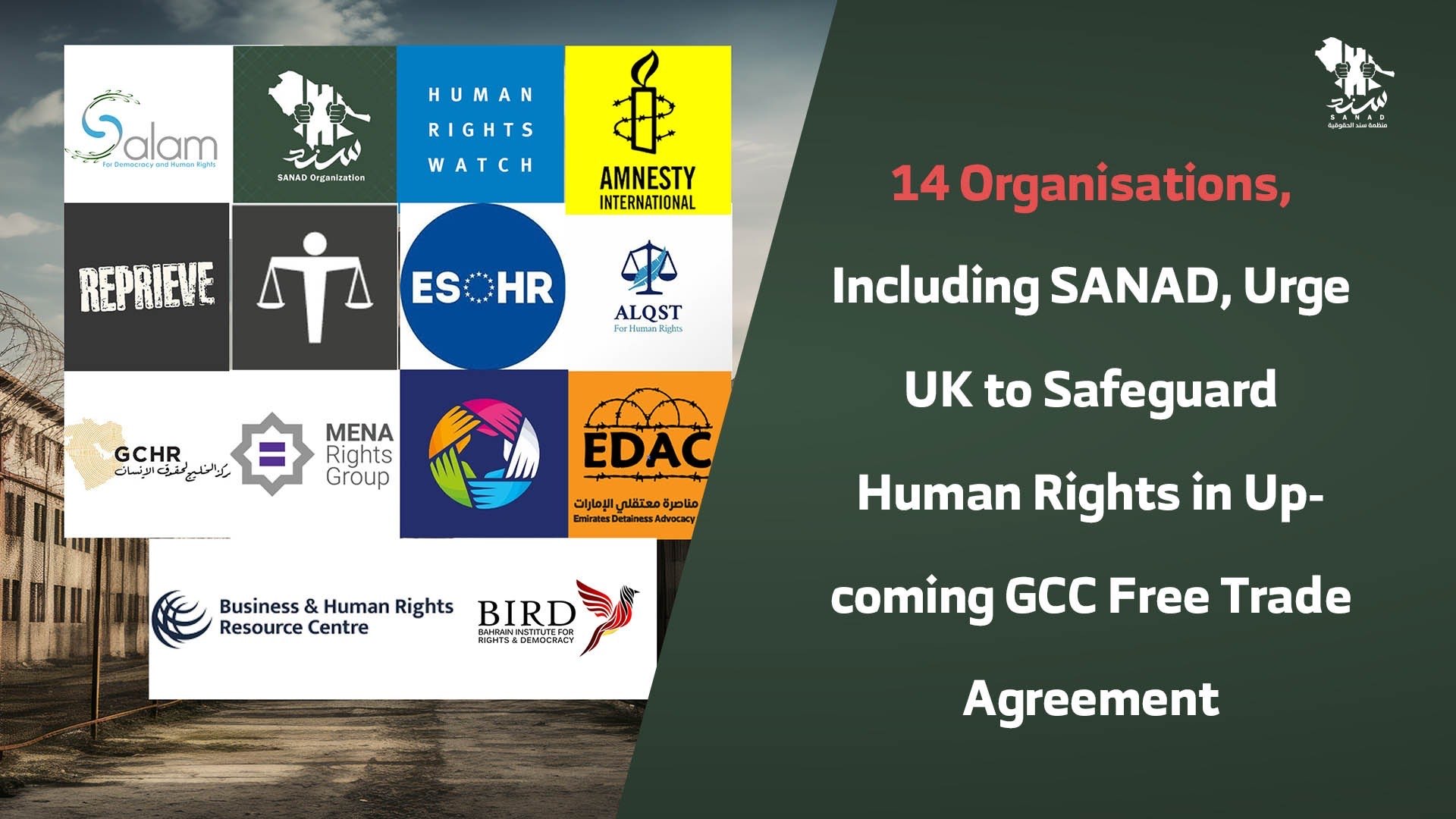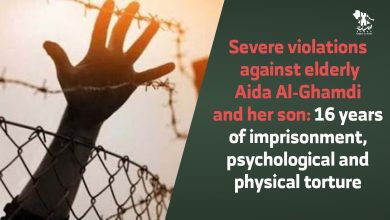
14 Organisations, Including SANAD, Urge UK to Safeguard Human Rights in Upcoming GCC Free Trade Agreement
 A coalition of 14 human rights organisations and a trade union — including SANAD Human Rights Organisation and Human Rights Watch — has sent a letter to UK Prime Minister Keir Starmer and Minister of State for Business and Trade Jonathan Reynolds, voicing deep concern over the lack of transparency and guarantees for human rights protection in the upcoming free trade agreement between the UK and the Gulf Cooperation Council (GCC).
A coalition of 14 human rights organisations and a trade union — including SANAD Human Rights Organisation and Human Rights Watch — has sent a letter to UK Prime Minister Keir Starmer and Minister of State for Business and Trade Jonathan Reynolds, voicing deep concern over the lack of transparency and guarantees for human rights protection in the upcoming free trade agreement between the UK and the Gulf Cooperation Council (GCC).
The coalition urged the UK government to publicly commit to including strict and binding human rights safeguards before signing any deal, warning that an agreement without such guarantees would heighten the risk of British companies becoming complicit in serious abuses, particularly against migrant workers.
In this context, Samer Al-Shamrani, Sanad’s Director of Operations, stated:
“It is clear that human rights are not a priority for GCC states, especially Saudi Arabia, where there is no sign of genuine reform. Equally worrying is the UK’s willingness to overlook these violations for the sake of its strategic and economic interests. The international community must avoid double standards when addressing human rights. It is deeply concerning that principles of freedom and justice are so easily sidelined for financial gains.”
The coalition highlighted that GCC states have “systematically failed to prevent or remedy widespread abuses against millions of migrant workers,” warning that the agreement could open the door to further forced labor, wage exploitation, and employer abuse. They also criticized the UK’s failure to pass comprehensive legislation requiring companies to prevent human rights abuses abroad.
The letter pointed to major projects in the Gulf tied to human rights violations, such as Saudi Arabia’s NEOM project, which has been marred by forced evictions, arrests, and killings of local residents.
The organizations demanded that the agreement must include:
An independent human rights and environmental impact assessment before signing.
Exclusion of investor-state dispute settlement provisions.
Binding obligations on companies and investors.
The establishment of an independent, transparent monitoring and accountability mechanism.
Finally, they warned against relying solely on “domestic advisory groups,” stressing that repression and reprisals in the region make it nearly impossible for such groups to operate effectively.






